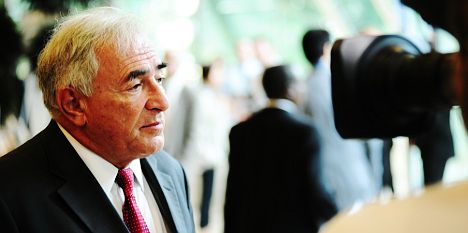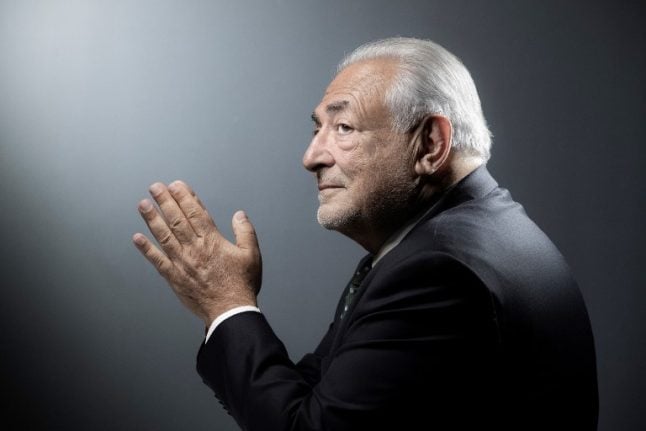Asked on Canal+ television when Strauss-Kahn would return home after sexual assault charges against him were dropped in the United States, she replied: “He will come back in the days to come.”
Aubry has announced her candidacy to lead the Socialist party in next year’s election against President Nicolas Sarkozy.
Strauss-Kahn was once considered the Socialist’s best hope to unseat Sarkozy but few expect him to run following the allegations of sexual misconduct.
“Dominique Strauss-Kahn has regained his freedom, to act, to move and to speak,” Aubry said.
“I have always said the same thing: first, the presumption of innocence, second, I think the same thing as many women about the attitude of Dominique Strauss-Kahn with respect to women,” she added.
“I was the first to say on the first day that we must at the same time defend the presumption of innocence, the victim, and her word”, Aubry said regarding the immediate public vilification of Strauss-Kahn after his May in arrest in New York on charges of sexually assaulting a hotel housekeeper.
A Manhattan court dismissed the charges on August 23 after prosecutors expressed doubts about the housekeeper’s credibility.
“As for the rest, that is a matter about which Dominique Strauss-Kahn must speak. The French people are not waiting for me to tell them what happened in that room. I do not know,” the Socialist leader said.
In the interview, Aubry insisted she wanted to focus on issues that directly affect the lives of French people, and not get mired in discussions about Strauss-Kahn’s personal life.
“The country is doing badly,” she added, arguing it did little good to dwell on the scandal.
“He will be here in a few days (…) we will ask him these questions,” she said.
In a poll conducted before the charges against him were dropped, a majority of French voters said they wanted the former IMF chief to stay out of politics.
The CSA survey, commissioned by broadcasters BFM and RMC and freesheet 20 Minutes found that 53 percent of people felt Strauss-Kahn “should not participate in the political debate in the coming months.”
In seven weeks, supporters of Strauss-Kahn’s Socialist Party will vote in an open primary to choose a candidate to face the centre-right Sarkozy.
Strauss-Kahn, 62, resigned as the International Monetary Fund’s managing director after he was arrested and charged in May with sexual assault and attempt to rape.
Last week, he walked free when a judge in New York dismissed charges against him. Prosecutors said they could not pursue the case because the accuser’s lies had made it impossible to prove her accusations beyond a reasonable doubt.
However the former IMF boss still faces civil charges in New York filed by the housekeeper Nafissatou Diallo and French writer Tristane Banon has since accused the former Socialist party stalwart of sexually assaulting her in a Paris flat in 2003.



 Please whitelist us to continue reading.
Please whitelist us to continue reading.
Member comments